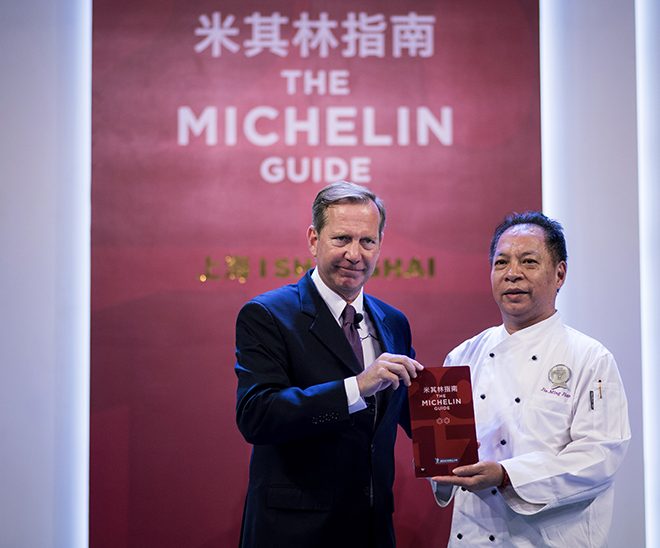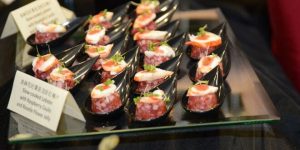Michelin Guide Launches in China
Unlike other Asian editions where the inclusion of street food causes controversy, this Shanghai edition of the Michelin Guide stays focused on restaurants.

The iconic food guide was launched in China to much fanfare Wednesday and served up an array of winners from both luxury establishments and humble haunts that offer traditional dishes. Following the Singapore edition and the upcoming Seoul edition, this Michelin guide is the first of its kind in the country, which is why it has garnered so much attention.
Covering the commercial hub of Shanghai, the guide awarded some 26 restaurants including a humble two-star establishment that is popular with local families, Canton 8. “Canton 8 is a reflection of what can be found in Shanghai – masterful, delicious and very good quality cooking,” said Michael Ellis, international director of the Michelin guides.
The highest accolade by the guide, a three-star rating, was awarded to T’ang Court – a six table joint in the Langham hotel. The Cantonese restaurant is famous for dishes such as braised sea cucumber and Wagyu beef. “The talented and creative chef Justin Tan offers cuisine in which traditional Cantonese dishes rub shoulders with some very modern dishes,” Ellis said.
To award the restaurants, inspectors visited the restaurants several times and paid for each dish they consumed before making a joint decision. If Singapore has been any indication, the restaurants in Shanghai can look forward to a surge in business. Canton 8 can likely expect to see a similar surge in customers, although on Tuesday night, before the release of the guide, the inexpensive two-storey restaurant was filled with only around 20 diners feasting on crystal prawn dumplings and lobster porridge.
“What makes Shanghai particularly exciting is it’s been an economic and cultural crossroads for decades and the gastronomy of Shanghai really reflects that rich history,” Ellis told AFP. First published in France, more than 100 years ago, with the aim of promoting automobile travel, it now covers 28 countries and helps to highlight various cuisines such as Brazilian, Burmese, Cajun, Peruvian and Tibetan.









